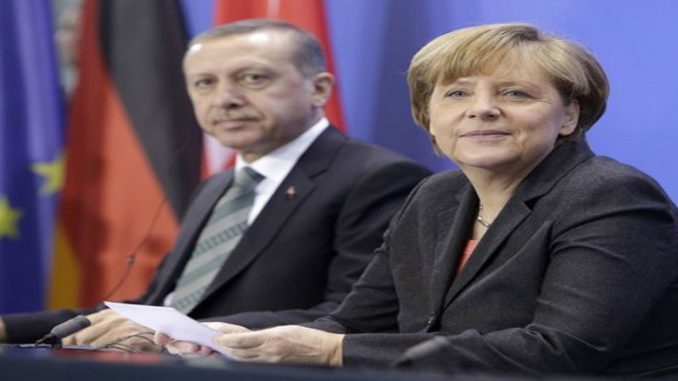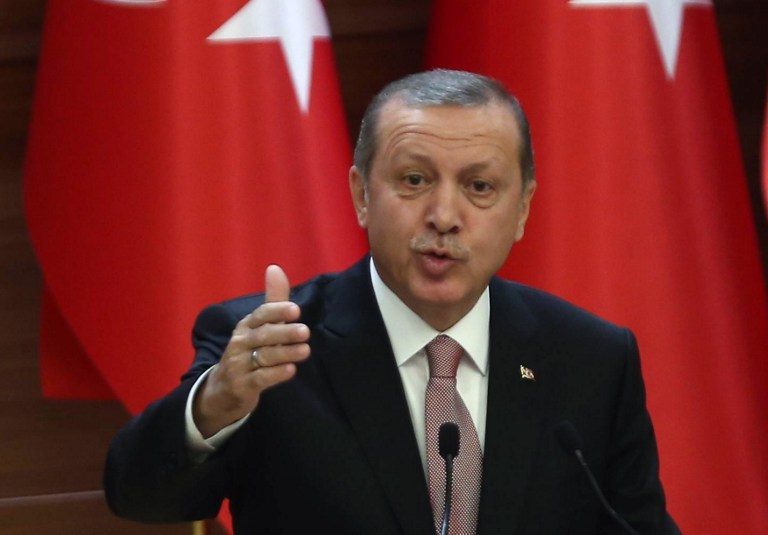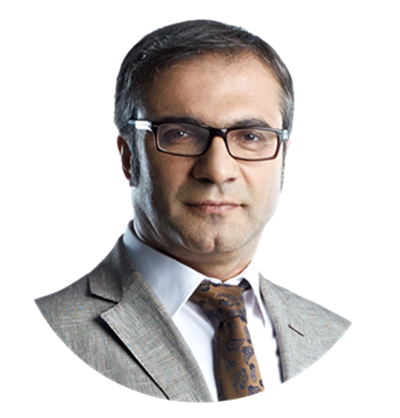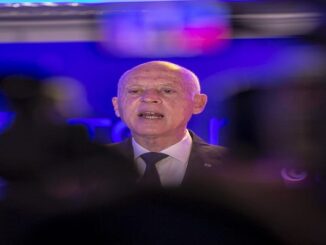
 BY: Yasin Aktay*
BY: Yasin Aktay*
Germany, which allows all anti-Turkey events by anybody from the Kurdistan Workers’ Party (PKK) to the Fetullah Terrorist Organization (FETÖ), generally ties this tolerance to its respect toward freedom of expression. And whenever the opportunity arises, it does not hold back from judging Turkey about freedom of expression.
However, by preventing Bozdağ’s expression, it shows just how “selective” it is about freedom of expression when the occasion arises. Yet, what’s more important is that it has also demonstrated through its excuse an important skill regarding possible appropriate ways to limit freedom of expression.
Allowing FETÖ and the PKK’s activities while it has enough reasons and legitimacy to easily prevent them, as they are within the context of praising and supporting terrorism rather than being in the simple context of the freedom of expression, is simply a choice.
On the other hand, preventing an entirely peaceful and democratic program that will be attended by one of Turkey’s ministers together with his own citizens due to a “lack of parking space,” clearly shows once more the direction of this preference. It is obvious that Germany’s preference concerning the upcoming referendum in Turkey is in the same direction as that of the PKK and FETÖ.
Once this is clarified, of course we can question why Germany’s preference is in this direction. But before that, we need to pay attention to what techniques Germany uses to put forth its democratic limits concerning democratic activities, expression, organization and political activities and what kind of democratic, activity and organization area it forms through these techniques.
Frankly, to restrict the freedom of expression and prevent an opposition it does not want from making room for itself, Germany creates a destructive pressure by means of using the laws and legislations as it pleases, instead of making clear its position. And when doing this, the judiciary and legislation provide it the most important weapons. It is an undoubtable fact that it has always had a special policy concerning Turkey in this regard. Regardless of how peaceful and democratic an organized structure is, when it categorizes the organization it wants as a threat under the Federal Office for the Protection of the Constitution, it will no longer be able to improve in Germany, because all its assets will immediately be seized and they will be closely monitored. There are numerous examples of how democracy and the boundaries of the freedom of expression are limited by Germany, which recently considers Turkey’s state of emergency concerning FETÖ as a breach of democracy and attempts through this means to give human rights lessons to Turkey, when its own security is in question.
In an operation and prosecution process against the Deniz Feneri Derneği (Lighthouse Association) in the past, it was quite clear from the beginning that it was determined to end a donation and aid operation. The rest was a matter of disguising it appropriately. It can be seen a lot clearer today that it received major logistic support from FETÖ elements in this operation. The aid network and culture established by the Lighthouse Association in Turkey and Germany was a serious competitor against FETÖ’s Himmet wheel and what was done to all competitors was done to them too. FETÖ had that operation carried out completely by its “sister” German judiciary without even getting its name involved.
Federal Germany’s statement about the cancellation of Bozdağ’s event has revealed another tactic of limiting freedoms. This time the responsibility was left to the local administration. In the end, Germany has so many restrictions in relation to democracy and political activities that only those who are given permission within these boundaries can progress and have presence.
Since those who do politics in the country have accepted these boundaries one way or another it does not seem like a problem, but the same Germany can see similar boundaries in other countries as the sign of the lack of democracy. It considers the most fascist pressures and applying the most incomprehensible restrictions to protect its own regime as a right. But right in the middle of Turkey’s fight against the felonious terrorist organization that has been sucking its blood for years, it can demand that Turkey change its anti-terror law and provide a more comfortable area of operation for terrorists.
Germany, which harshly criticized Turkey due to the violence applied against the activists during the Gezi Park incidents, had presented the incredible police violence demonstrated against the protests that took place in Hamburg shortly after as, “a just and natural measure that needed to be taken against those who disturbed the peace.” Actually, it didn’t really present anything; it had even prevented the world from seeing the protests through its blackout operation by keeping the press outside the area of the scene.
It is true, Germany is making a preference. With this preference, FETÖ and the PKK are both in the same line. While allowing their activities in Germany and turning a blind eye to their taking shelter there, they are also continuing their efforts to improve their position in Turkey. Of course, as Turkey, we are having trouble understanding the reasons. We ask, “Why is Germany doing this?” and we will continue to ask.
*Yasin Aktay is the vice chair of the ruling Justice and Development (AK Party) in Turkey.
(Published in Yeni Şafak Turkısh newspaper on Saturday, March 4, 2017)



